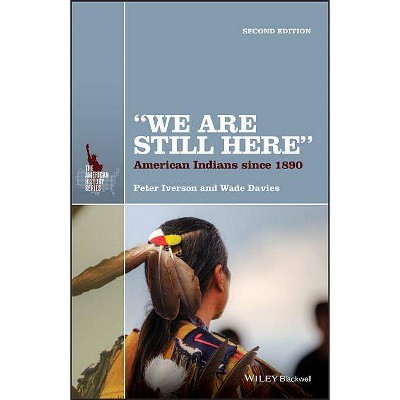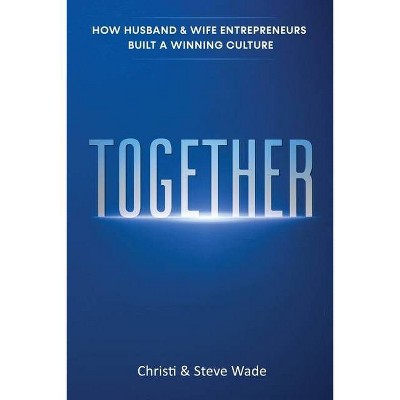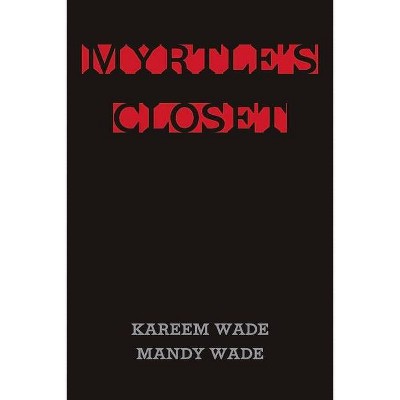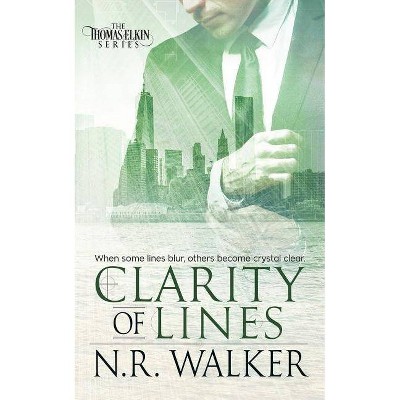Nicaragua - 6th Edition,Annotated by Thomas W Walker & Christine J Wade (Paperback)
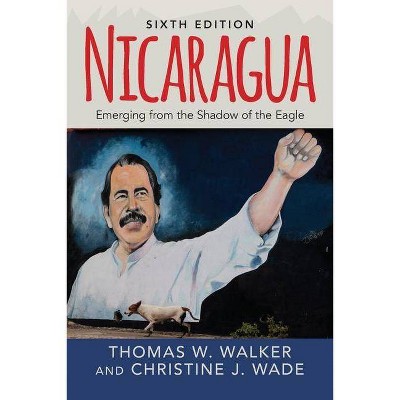
Similar Products
Products of same category from the store
AllProduct info
<p/><br></br><p><b> About the Book </b></p></br></br><p><em>Nicaragua: Emerging from the Shadow of the Eagle</em> details the country's unique history, culture, economics, politics, and foreign relations. The thoroughly revised and updated sixth edition features new material covering political, economic, and social developments since 2011.</p><p/><br></br><p><b> Book Synopsis </b></p></br></br><p><em>Nicaragua: Emerging from the Shadow of the Eagle</em> details the country's unique history, culture, economics, politics, and foreign relations. Its historical coverage considers Nicaragua from pre-Columbian and colonial times as well as during the nationalist liberal era, the U.S. Marine occupation, the Somoza dictatorship, the Sandinista revolution and government, the conservative restoration after 1990, and consolidation of the FSLN's power since the return of Daniel Ortega to the presidency in 2006.</p><p>The thoroughly revised and updated sixth edition features new material covering political, economic, and social developments since 2011. This includes expanded discussions on economic diversification, women and gender, and social programs. Students of Latin American politics and history will learn the how the interventions by the United States 'the eagle' to 'the north' have shaped Nicaraguan political, economic, and cultural life, but also the extent to which Nicaragua is increasingly emerging from the eagle's shadow.</p><p/><br></br><p><b> From the Back Cover </b></p></br></br>"Praise for Previous Editions" <BR> Few countries have been gripped so tightly, and for so long, by the talons of the eagle as Nicaragua. With meticulous scholarship and scrupulous care, this extensive updating of Thomas Walker s standard work provides rich insight into Nicaragua s courageous struggles for freedom and their fate, and into the motives and character of the eagle. It is a revealing case study that teaches lessons of great value for understanding the world. <BR> Noam Chomsky, Massachusetts Institute of Technology <BR> A succinct, thoughtful, multifaceted overview of Nicaragua by two excellent scholars of Central America. Rich in detail and insight "Nicaragua" continues to serve as the best introduction to Nicaragua and Nicaraguan politics. It is ideally suited for undergraduate courses and beginning graduate courses, and for the general reader. <BR> Harry E. Vanden, University of South Florida <BR>"Nicaragua: Emerging from the Shadow of the Eagle" details the country s unique history, culture, economics, politics, and foreign relations. Its historical coverage considers Nicaragua from pre-Columbian and colonial times as well as during the nationalist liberal era, the U.S. Marine occupation, the Somoza dictatorship, the Sandinista revolution and government, the conservative restoration after 1990, and consolidation of the FSLN s power since the return of Daniel Ortega to the presidency in 2006. <BR>The thoroughly revised and updated sixth edition features new material covering political, economic, and social developments since 2011. This includes expanded discussions on economic diversification, women and gender, and social programs. Students of Latin American politics and history will learn the how the interventions by the United States the eagle to the north have shaped Nicaraguan political, economic, and cultural life, but also the extent to which Nicaragua is increasingly emerging from the eagle s shadow. <BR>Thomas W. Walker is professor emeritus of political science and director emeritus of Latin American studies at Ohio University. His eleven books include "Reagan versus the Sandinistas," "Revolution and Counterrevolution in Nicaragua," and "Understanding Central America" (Westview Press). <BR>Christine J. Wade is associate professor of political science and international studies at Washington College in Maryland. She is the author of "Captured Peace: Elites and Peacebuilding in El Salvador" (Ohio University Press) and coauthor of "Understanding Central America" (Westview Press).<BR>"<p/><br></br><p><b> Review Quotes </b></p></br></br><br><b>Praise for Prior Editions</b> <p/>"Few countries have been gripped so tightly, and for so long, by the talons of the eagle as Nicaragua. With meticulous scholarship and scrupulous care, this extensive updating of Thomas Walker's standard work provides rich insight into Nicaragua's courageous struggles for freedom and their fate, and into the motives and character of the eagle. It is a revealing case study that teaches lessons of great value for understanding the world."<br>--Noam Chomsky, Massachusetts Institute of Technology <p/>"More than thirty years have passed since the FSLN came to power in a popular revolution, but the story of that special era and its meaning for contemporary Nicaragua and Latin America more generally is very much worth revisiting. Walker and the new coauthor, Christine Wade, do an excellent job of connecting the past with the present."<br>--Gary Prevost, St. John's University/College of St. Benedict <p/>"A succinct, thoughtful, multifaceted overview of Nicaragua by two excellent scholars of Central America. Rich in detail and insight, the fifth edition of <i>Nicaragua: Living in the Shadow of the Eagle</i> continues to serve as the best introduction to Nicaragua and Nicaraguan politics. It is ideally suited for undergraduate courses and beginning graduate courses, and for the general reader."<br>--Harry E. Vanden, University of South Florida<br><br><br><b>Praise for Prior Editions</b> <br>-Few countries have been gripped so tightly, and for so long, by the talons of the eagle as Nicaragua. With meticulous scholarship and scrupulous care, this extensive updating of Thomas Walker's standard work provides rich insight into Nicaragua's courageous struggles for freedom and their fate, and into the motives and character of the eagle. It is a revealing case study that teaches lessons of great value for understanding the world.-<br>--Noam Chomsky, Massachusetts Institute of Technology <br>-More than thirty years have passed since the FSLN came to power in a popular revolution, but the story of that special era and its meaning for contemporary Nicaragua and Latin America more generally is very much worth revisiting. Walker and the new coauthor, Christine Wade, do an excellent job of connecting the past with the present.-<br>--Gary Prevost, St. John's University/College of St. Benedict <br>-A succinct, thoughtful, multifaceted overview of Nicaragua by two excellent scholars of Central America. Rich in detail and insight, the fifth edition of <i>Nicaragua: Living in the Shadow of the Eagle</i> continues to serve as the best introduction to Nicaragua and Nicaraguan politics. It is ideally suited for undergraduate courses and beginning graduate courses, and for the general reader.-<br>--Harry E. Vanden, University of South Florida<br><br><br><b>Praise for Prior Editions</b> <br>"Few countries have been gripped so tightly, and for so long, by the talons of the eagle as Nicaragua. With meticulous scholarship and scrupulous care, this extensive updating of Thomas Walker's standard work provides rich insight into Nicaragua's courageous struggles for freedom and their fate, and into the motives and character of the eagle. It is a revealing case study that teaches lessons of great value for understanding the world."<br>--Noam Chomsky, Massachusetts Institute of Technology <br>"More than thirty years have passed since the FSLN came to power in a popular revolution, but the story of that special era and its meaning for contemporary Nicaragua and Latin America more generally is very much worth revisiting. Walker and the new coauthor, Christine Wade, do an excellent job of connecting the past with the present."<br>--Gary Prevost, St. John's University/College of St. Benedict <br>"A succinct, thoughtful, multifaceted overview of Nicaragua by two excellent scholars of Central America. Rich in detail and insight, the fifth edition of <i>Nicaragua: Living in the Shadow of the Eagle</i> continues to serve as the best introduction to Nicaragua and Nicaraguan politics. It is ideally suited for undergraduate courses and beginning graduate courses, and for the general reader."<br>--Harry E. Vanden, University of South Florida<br><br><br><b>Praise for Prior Editions</b> <br> Few countries have been gripped so tightly, and for so long, by the talons of the eagle as Nicaragua. With meticulous scholarship and scrupulous care, this extensive updating of Thomas Walker's standard work provides rich insight into Nicaragua's courageous struggles for freedom and their fate, and into the motives and character of the eagle. It is a revealing case study that teaches lessons of great value for understanding the world. <br>Noam Chomsky, Massachusetts Institute of Technology <br> More than thirty years have passed since the FSLN came to power in a popular revolution, but the story of that special era and its meaning for contemporary Nicaragua and Latin America more generally is very much worth revisiting. Walker and the new coauthor, Christine Wade, do an excellent job of connecting the past with the present. <br>Gary Prevost, St. John's University/College of St. Benedict <br> A succinct, thoughtful, multifaceted overview of Nicaragua by two excellent scholars of Central America. Rich in detail and insight, the fifth edition of <i>Nicaragua: Living in the Shadow of the Eagle</i> continues to serve as the best introduction to Nicaragua and Nicaraguan politics. It is ideally suited for undergraduate courses and beginning graduate courses, and for the general reader. <br>Harry E. Vanden, University of South Florida<br>"<br><br>Praise for Prior Editions <BR> Few countries have been gripped so tightly, and for so long, by the talons of the eagle as Nicaragua. With meticulous scholarship and scrupulous care, this extensive updating of Thomas Walker s standard work provides rich insight into Nicaragua s courageous struggles for freedom and their fate, and into the motives and character of the eagle. It is a revealing case study that teaches lessons of great value for understanding the world. <BR>Noam Chomsky, Massachusetts Institute of Technology <BR> More than thirty years have passed since the FSLN came to power in a popular revolution, but the story of that special era and its meaning for contemporary Nicaragua and Latin America more generally is very much worth revisiting. Walker and the new coauthor, Christine Wade, do an excellent job of connecting the past with the present. <BR>Gary Prevost, St. John s University/College of St. Benedict <BR> A succinct, thoughtful, multifaceted overview of Nicaragua by two excellent scholars of Central America. Rich in detail and insight, the fifth edition of "Nicaragua: Living in the Shadow of the Eagle" continues to serve as the best introduction to Nicaragua and Nicaraguan politics. It is ideally suited for undergraduate courses and beginning graduate courses, and for the general reader. <BR>Harry E. Vanden, University of South Florida<BR>"<br><p/><br></br><p><b> About the Author </b></p></br></br><b>Thomas W. Walker</b> is professor emeritus of political science and director emeritus of Latin American studies at Ohio University. His eleven books include <i>Reagan versus the Sandinistas</i>, <i>Revolution and Counterrevolution in Nicaragua</i>, and <i>Understanding Central America</i> (Westview Press). <p/><b>Christine J. Wade</b> is associate professor of political science and international studies at Washington College in Maryland. She is the author of <i>Captured Peace: Elites and Peacebuilding in El Salvador</i> (Ohio University Press) and coauthor of <i>Understanding Central America</i> (Westview Press).<br>
Price History
Price Archive shows prices from various stores, lets you see history and find the cheapest. There is no actual sale on the website. For all support, inquiry and suggestion messagescommunication@pricearchive.us
